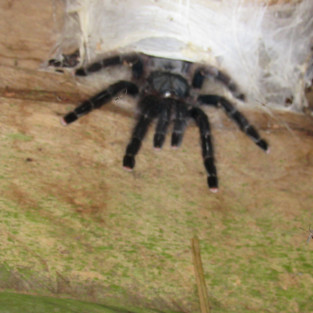Madidi National Park
- Cheryl
- Jul 14, 2019
- 2 min read
Updated: Aug 28, 2019
Monsoon rains beat on our roof and flood the streets of Rurrenabaque, a tiny town considered to be the gateway to Bolivia’s rain forest.

From here we planned an up-river trek to the Madidi National Forest, where we’d spend three days exploring from our home-base of Mididi Jungle Ecolodge — but first we need to rent rubber boots.
The lazy river we watched the sunset over last night is now swollen and filled with swirling fallen trees and other debris. The boatman, we’re told, has many years of river experience, but my husband — who doesn’t swim and has a fear of boats at the best of times — is dubious.
“No problem,” our tour agent assures us, but I’m not convinced.

But our agent is right, the boatman is experienced and our white knuckles are unwarranted.

After three-long-hours we arrive at the end of our boat journey, only to find ourselves without a dock, a flooded path before us. Just when it seems like our rubber boots will earn their keep, we’re told to take them off.
Huh?

Rubber boots are good for puddles, but not sinkholes. Mud sinks us into pits up to our waists, sucking at our clothes and feet. The park is beautiful, but the greenery is incidental to our arduous trek.

We are filthy when, an hour and a half later we arrive at an Ecolodge so spotless I don’t want to touch anything. It's beautiful.

Once we stop panting, I’m struck by the droning of insects I can’t identify and the distant shrieks of Howler Monkeys. What I don’t hear is rain.


"Don’t touch anything,” our guide tells us, looking directly at my husband as we venture outside the lodge. It’s our second day in the jungle and we’re exploring the jungle’s tiniest wonders — fire ants. They form long columns as they traverse towering trees, home to the monkeys we heard the day before.

We spent the rest of our time in the national park learning about the birds, insects (including giant spiders), and mammals that rely on the fragile jungle ecosystem.
But we also learn about the harrowing struggle to establish and maintain the often contentious wildlife reserve. Founded in large part thanks to the remarkable work of Rosa Maria Ruiz, Madidi has drawn the ire of those who want to mine, farm, log, hunt and develop the National Park. Ruiz’s continues her activism, even in the face of death threats, to protect the park and its future.

After hearing about the threats, the violence and the history, our hike back to the river seems less arduous — but much more rewarding.












What a great adventure. I’m on the edge of my seat waiting to hear more of your travels. Cheers to your travel blog🍷🎉